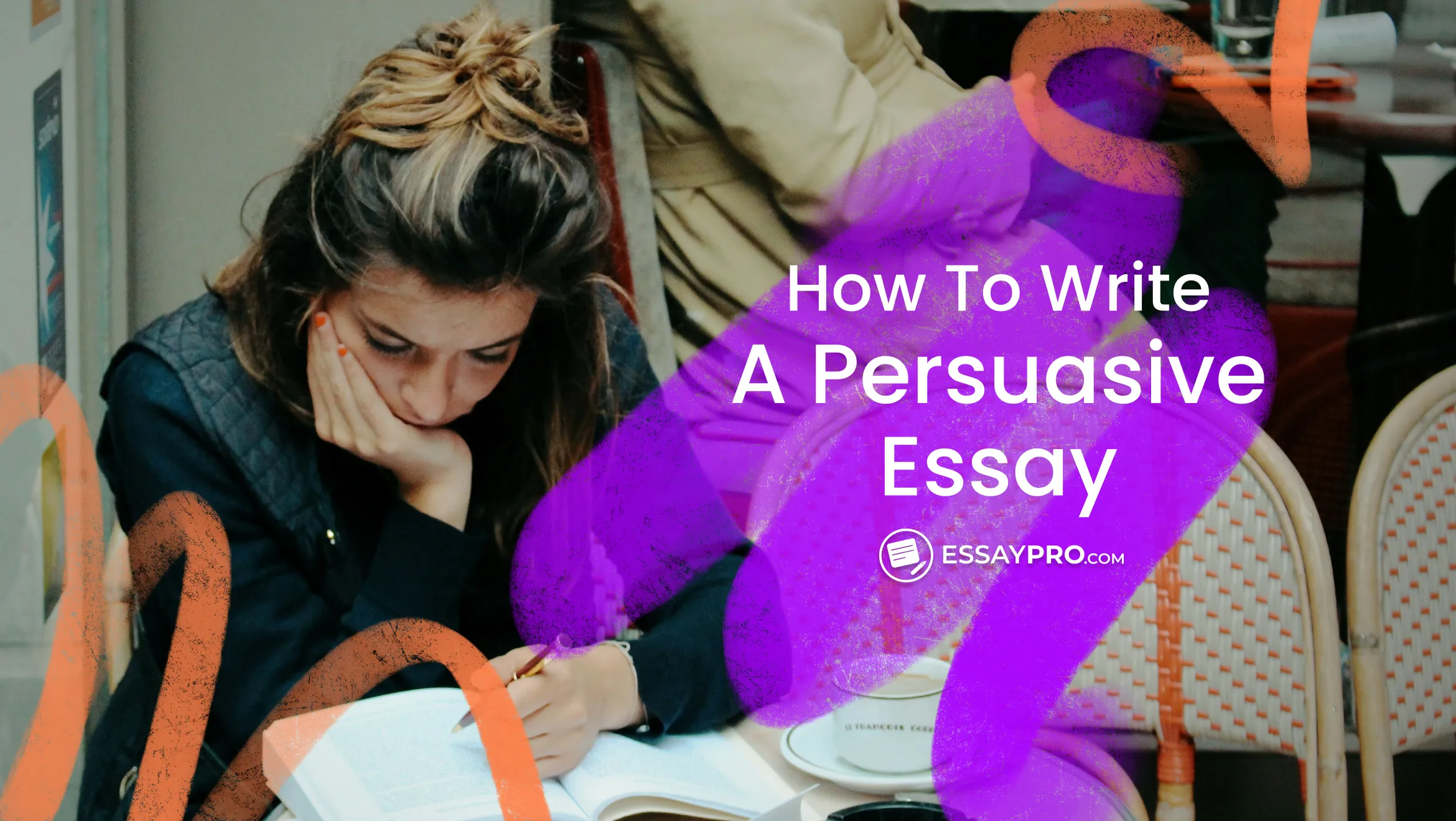How to Edit an Essay: 10 Best Tips to Consider
Ever written an essay and felt like something just wasn't quite right? You poured your heart into the content, but the flow feels clunky, or maybe your argument could be stronger. The essay editing stage is what will help you out. Here, our expert writing services suggest 10 powerful editing tips to help you transform your essay from good to great.
.webp)
Tip #1: Strengthen Your Thesis
When editing an essay, make sure your thesis statement summarizes your main argument and tells the reader exactly what you'll be proving. A strong thesis is clear, specific, and debatable.
Weak Thesis Example: "Video games can be fun."
This statement is too general and doesn't make a clear claim. It doesn't tell the reader what specific point you'll be arguing about video games.
Strong Thesis Example: "While video games offer entertainment value, their excessive use can negatively impact a person's social development and academic performance."
This revised thesis is specific (discusses excessive use) and debatable (someone might argue the benefits outweigh the drawbacks). It clearly outlines the main argument the essay will explore.
Also, highlight the "So What" factor. Your thesis should make the reader curious about your argument. "Fast food restaurants are popular" doesn't pique much interest. However, "Despite their convenience and affordability, the widespread consumption of fast food contributes to a rise in obesity and preventable health problems."
Tip #2: Combat Redundancies
Redundancy can weigh down your writing, making it sound repetitive and unclear. So, while essay editing, here’s how to ensure your message hits home:
- Eliminate Unnecessary Phrases: Scrutinize phrases like "in a very unique way" or "absolutely essential." These add little value and can often be replaced with simpler words.
- Vary Sentence Structure: Don't get stuck in a rut of subject-verb-object sentences. Mix it up with different sentence lengths and starting points to keep your writing engaging.
- Find Stronger Synonyms: Instead of constantly using "very" or "really" to emphasize points, swap them for more impactful verbs or descriptive adjectives.
Weak Example:
"The historical significance of the invention of the printing press is very important. It had a significant impact on the spread of knowledge and ideas throughout the world in an extremely efficient way."
Stronger Example:
"The invention of the printing press stands as a landmark moment in history. Its efficient mass production revolutionized the spread of knowledge and ideas, forever altering the course of global communication."
If this sounds too daunting, request - ‘do my essay’ - for us to make sure your writing is spotless!
Tip #3: Focus on Structure
A well-structured essay will guide the reader through your argument in a clear and logical way. While editing essays, ensure your structure has a strong foundation by considering the following:
- Distinct Sections: Your essay should be divided into clear sections – typically an introduction, body paragraphs, and a conclusion. Each section plays a specific role.
- Logical Flow: Ideas should flow seamlessly from one paragraph to the next. Use transition words and phrases (e.g., "however," "furthermore") to connect your arguments and create a smooth reading experience.
- Topic Sentences: Each body paragraph should begin with a strong topic sentence that directly connects back to your thesis statement and introduces the specific point you'll be discussing in that paragraph.
Tip #4: Verify Facts and References
Credibility is key! This tip ensures your essay rests on a foundation of accurate information. Here's how to solidify your research and avoid factual errors:
- Don't rely solely on memory or a single source. Verify all statistics, quotes, and factual claims with reliable sources like academic journals, reputable news outlets, and scholarly books.
- When possible, compare information from multiple sources to ensure accuracy and avoid perpetuating misinformation.
- Evaluate the credibility of your sources. Look for established organizations or authors with expertise in the field you're researching. Be cautious of websites or articles with a clear agenda or vested interest.
Weak Example:
A recent study (source not provided) claims that spending time outdoors can significantly reduce stress levels.
Stronger Example:
According to a 2023 study published in the Journal of Environmental Psychology, spending time in nature can significantly reduce cortisol levels, a key stress hormone, in participants.


Tip #5: Double-Check Your Citations (and Avoid Plagiarism)
Academic integrity is paramount! This tip ensures you're giving credit where credit is due and steers clear of plagiarism.
- Distinguish Between Quotes and Paraphrases: Direct quotes require quotation marks and proper in-text citations. When paraphrasing, cite the source but rephrase the information in your own words.
- Avoid Patchwriting: Don't string together quotes or paraphrases from different sources without proper integration and analysis. Your essay should showcase your understanding, not just a compilation of borrowed ideas.
Weak Example:
Shakespeare once said, "To be or not to be, that is the question" (source not provided). This famous quote is very relevant to my essay.
Stronger Example:
In Hamlet's famous soliloquy, Shakespeare ponders the existential question of life and death: "To be or not to be, that is the question" (Hamlet, III.i.56). This contemplation reflects the play's central theme of mortality and the human condition.
Consider using Essaypro's citation generator to ensure all your citations are formatted correctly, including in-text citations and the reference list.
Tip #6: Eliminate Logical Fallacies
Logical fallacies are flaws in reasoning that can weaken your argument. Here's how to identify and eliminate them from your essay:
- Understand Common Fallacies like hasty generalizations (conclusions based on limited evidence), ad hominem attacks (attacking the person, not the argument), and slippery slope fallacies (suggesting a small step will lead to a disastrous outcome).
- Scrutinize Your Reasoning, looking for places where your logic might be flawed. Are you making assumptions without evidence? Are you relying on irrelevant information?
- Strengthen Your Arguments to be more logical. Provide solid evidence to support your claims and avoid emotional appeals or irrelevant connections.
Weak Example:
Everyone loves pizza, so it must be the best food ever invented.
Stronger Example (Avoiding Hasty Generalization):
Pizza is a globally popular food enjoyed by people of all ages and cultures. However, taste preferences are subjective, and there are many other delicious culinary options to explore.
Tip #7: Consider Counterarguments
A strong argument anticipates potential objections. When you edit an essay, here's how to address counterarguments effectively:
- Briefly acknowledge and explain why someone might disagree with your thesis. This shows you've considered different perspectives.
- Don't shy away from opposing viewpoints. Briefly explain why your argument holds more weight, provide additional evidence to counter the objection, or acknowledge the limitations of your argument.
- Don't misrepresent the opposing viewpoint to make it easier to defeat. Engage with the actual counterargument fairly.
Weak Example:
Video games are a great way to spend leisure time. They offer entertainment and relaxation.
Stronger Example:
Video games can provide entertainment and relaxation, offering a welcome escape from daily pressures. However, some might argue excessive gaming can negatively impact social interaction and academic performance. While video games can be enjoyed responsibly, it's important to maintain a healthy balance with other activities.
Tip #8: Use Active Voice Construction
Active voice injects energy and clarity into your writing. Here's how to edit an essay by leveraging it for more impactful writing:
- In an active voice, the subject of the sentence performs the action. "The scientist conducted the experiment" is stronger than "The experiment was conducted by the scientist."
- The active voice often uses stronger verbs, making your writing more engaging. "The evidence supports the theory" is more forceful than "The theory is supported by the evidence."
- Active voice creates a more direct and engaging reading experience. It keeps the focus on the actor and their actions.
Weak Example:
A study was conducted by researchers to investigate the effects of social media on mental health.
Stronger Example:
Researchers conducted a study to investigate the effects of social media on mental health.
Tip #9: Tailor Your Tone
The right tone sets the stage for your essay. College essay editing will require you to:
- Consider who will be reading your essay. Is it a professor, a general audience, or a specific professional field?
- Maintain a formal tone. Avoid slang, contractions, and excessive informality.
- Strive for objectivity in most academic writing. Express your ideas clearly, but avoid stating opinions as facts.
- Consider the purpose of your essay. Is it to inform, persuade, or analyze? Tailor your tone to achieve the desired impact.
Weak Example (Informal Tone in a Research Paper):
Social media is super addictive. It's crazy how much time people spend on it.
Stronger Example (Formal Tone):
The widespread use of social media platforms raises concerns about their addictive potential. Research suggests excessive social media engagement can negatively impact mental health and productivity.
Don't forget that you can buy research paper from our team of professionals to polish your work!
Tip #10: Beware of Confirmation Bias
During research, objectivity is key. Here's how to edit an essay well by avoiding confirmation bias:
- Seek Diverse Perspectives: Don't just seek information that confirms your existing beliefs. Actively search for opposing viewpoints on gun control and address them fairly.
- Evaluate Sources Critically: Consider the source's credibility and potential bias. Look for a variety of sources, including academic journals, reputable news outlets, and scholarly books presenting different viewpoints on the history of the Internet.
- Openness to New Ideas: Be receptive to new information that might challenge your initial assumptions about the benefits of renewable energy. A strong essay acknowledges complexities and avoids oversimplification.
Weak Example (Confirmation Bias):
Fast food is unhealthy because it's high in calories and fat (based on a single source promoting a plant-based diet).
Stronger Example (Open to Different Perspectives):
The impact of fast food on health is a complex issue. While some studies highlight potential risks for obesity and heart disease, others suggest fast food can be a convenient and affordable option in moderation. A balanced diet and healthy lifestyle choices are crucial factors.
Final Reflections
Writing a great essay takes work, but editing is where your writing truly comes alive. These 10 tips on how to edit an essay will help you take your essays from good to amazing.
- Ensure a strong thesis statement
- Cut out unnecessary words
- Clear organization
- Double-check your facts
- Proper citations
- Catch weak arguments
- Consider other viewpoints
- Use active voice
- Match your writing style to your audience
- Be open to new information
With these editing skills under your belt, you can tackle any writing project with confidence. Alternatively, you can always rely on our expert essay editing service.
Are You Ready to Level Up Your Writing?
Let our expert writers improve your grades by always delivering top-quality, plagiarism-free papers in no time!
FAQs
What are the 5 C's of Editing?
The 5 C's of editing are:
- Clarity: Make sure your writing is easy to understand.
- Conciseness: Remove any unnecessary words or repetitions.
- Consistency: Ensure your style and tone are uniform throughout.
- Correctness: Check for grammar, punctuation, and spelling errors.
- Coherence: Ensure your ideas flow logically and smoothly.
What is the Best Way to Edit an Essay?
The best way to edit an essay is to take it step by step. First, take a break after writing to clear your mind. Then, read through your essay for clarity and structure. Check for grammar and spelling errors, and make sure all your facts and sources are accurate. Finally, get feedback from someone else and make any necessary changes.
What are the Common Mistakes While Editing?
Common mistakes while editing include:
- Overlooking small errors: Missing typos or minor grammar mistakes.
- Ignoring structure: Not checking the overall flow and organization.
- Rushing: Trying to edit too quickly and missing important details.
- Relying only on software: Not doing a manual check in addition to using editing tools.
- Failing to get feedback: Not asking someone else to review your work.

Daniel Parker
is a seasoned educational writer focusing on scholarship guidance, research papers, and various forms of academic essays including reflective and narrative essays. His expertise also extends to detailed case studies. A scholar with a background in English Literature and Education, Daniel’s work on EssayPro blog aims to support students in achieving academic excellence and securing scholarships. His hobbies include reading classic literature and participating in academic forums.
- Bartram, J. (n.d.). Library: Essay writing: Revising & editing. Libguides.hull.ac.uk. Retrieved July 12, 2024, from https://libguides.hull.ac.uk/essays/edit
- Pavic, H. (2023, September 29). Editing Your Essay: Do’s and Don’t’s. Lakewood University. https://lakewood.edu/2023/09/editing-your-essay-dos-and-donts/#/

%202.webp)




